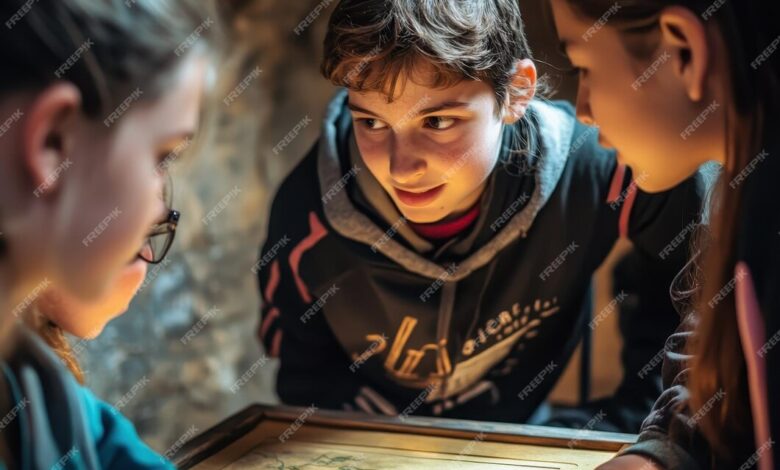Building Bright Futures: A Guide to Educating Young Minds

Early education lays the groundwork for a child’s cognitive, emotional, and social development. The first few years of life are when young minds are most open to learning, absorbing new information like a sponge. Investing time and resources in education during these formative years ensures children are equipped with the tools they need to thrive in school and beyond.
Setting the Foundation: Choosing the Right Educational Approach
Every child is unique, which means there’s no one-size-fits-all approach to education. Whether it’s Montessori, Reggio Emilia, play-based learning, or a traditional method, it’s essential to consider a child’s personality, strengths, and interests when selecting an educational framework.
Ask yourself questions like:
- Is this approach flexible enough to cater to my child’s needs?
- Does it encourage creativity and critical thinking?
- Will it instill a love for lifelong learning?
The right approach creates a nurturing environment where children feel empowered to explore, discover, and grow on their terms.
Nurturing a Love for Learning: Strategies for Engaging Young Minds
Children are naturally curious, making them eager to learn. Your job, as an educator or caregiver, is to keep that fire burning. Here’s how to nurture their innate love for learning:
- Make it interactive: Use hands-on activities and experiments to make lessons exciting and memorable.
- Encourage questions: Foster a classroom culture where curiosity is celebrated and inquiry is welcomed.
- Celebrate their successes: Even small milestones are worth applauding. Positive reinforcement helps motivate young learners.
- Read, read, read: Storytelling and shared book reading are powerful tools to engage young minds and spark imagination.
When children associate learning with fun and positivity, they’re more likely to stay engaged and excited about new experiences.
Building Essential Skills: The Role of Play in Learning
Play is more than just fun—it’s a crucial part of cognitive, social, and emotional development. Through play, children learn to solve problems, work collaboratively, and develop fine motor skills. It’s no surprise that many educational models integrate play at the center of their curriculums.
- Imaginative Play fosters creativity and helps children explore emotions and social roles.
- Physical Play boosts coordination, strength, and health.
- Structured Games encourage teamwork and strategic thinking.
By blending play with structured lessons, young learners build essential skills while developing a deep-seated love for discovery.
Partnering with Parents: The Value of Home-School Connection
Education doesn’t stop at the classroom door. Parents play a pivotal role in reinforcing what children learn at school in their home environment. A strong home-school partnership ensures consistency and helps children feel supported in their educational journeys.
Here are some ways to build that connection:
- Regular communication between parents and educators to update on progress and challenges.
- Provide at-home activities that align with lessons being taught in school.
- Encourage shared responsibilities, where both educators and parents foster skills like reading, social development, and creativity.
Children who feel supported at home and school are more likely to succeed academically and emotionally.
Creating a Supportive Learning Environment: Tips for Educators and Caregivers
A positive learning environment makes all the difference in how children experience education. In a preschool like in Sandy, children thrive in an atmosphere where they feel safe, respected, and encouraged to explore.
- Foster inclusivity by recognizing and celebrating diversity in the classroom.
- Create physical spaces that are inviting and tailored to young learners, with accessible resources and stimulating materials.
- Develop emotional support systems to help children tackle challenges. Teach emotional intelligence through discussions, role-playing, and mindfulness activities.
By being intentional with the spaces we create, we empower young learners and ensure their time in school is both enjoyable and impactful.
Overcoming Challenges: Addressing Common Issues in Early Education
Early education can be incredibly rewarding, but it also has its challenges. Here are a few common issues and ways to address them:
- Short attention spans in young learners? Use a variety of teaching methods to maintain engagement. Rotate activities frequently to keep their interest fresh.
- Behavioral concerns Understand the root of the issue and teach conflict-resolution strategies using patience and empathy.
- Limited resources Get creative by repurposing everyday items for learning activities and partnering with parents for additional materials.
A proactive mindset and problem-solving strategies can turn roadblocks into stepping stones for success.
Conclusion
Educating young minds means more than providing facts—it’s about helping children grow into empathetic, capable, and curious individuals who are prepared for the challenges of tomorrow. By choosing the right educational approaches, fostering a love for learning, and collaborating with parents, educators can ensure every child has the opportunity to flourish.



